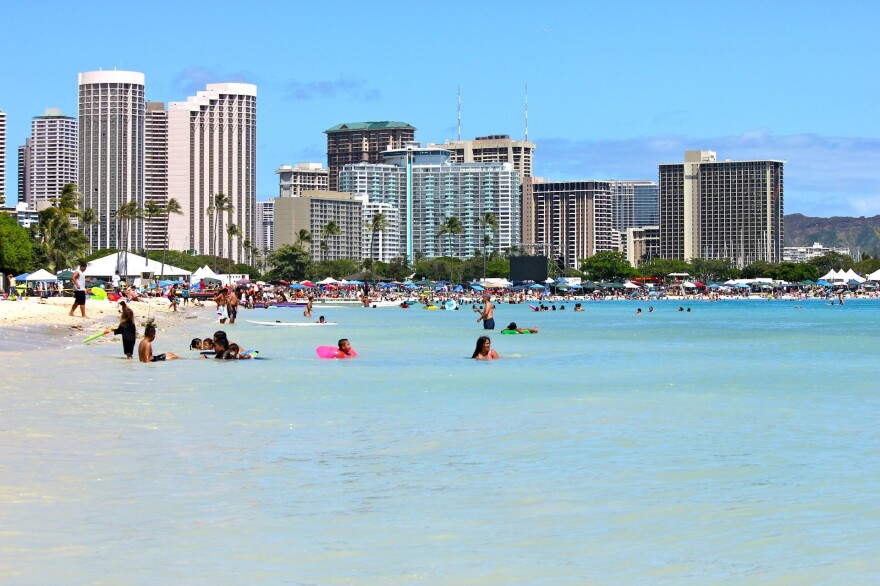Isolated economies such as Hawaii, New Zealand and Western Australia are dominated by one major industry, thus leaving it open to external shocks. A new look explores these vulnerabilities and how economic diversification might be possible.
In a brief comparing these economies from the University of Hawaii Economic Research Organization, Steven Bond-Smith says the economies are relatively small scale, but still integrated as part of a globalized trade system.
"These economies, in order to compete, in order to be highly productive, they need to have a large-scale industry," Bond-Smith said. In Hawaii, the primary industry is tourism; in New Zealand, it's food and agriculture; and in Western Australia, it's iron ore.
However, external shocks - such as a drop in the price of iron ore and dairy, and fewer visitor arrivals - have led to recessions.
Innovation becomes a challenge in these places because there is no critical mass for "serendipity.
"It's serendipity that yielded chance meetings with another engineer who has the compatible piece of know-how that generated each of the new products and improvements we witness every year in Silicon Valley," Bond-Smith said.
However, Hawaii does have some advantage as it already is a destination for conventions.
The Islands have been described as a gateway between Asia and the U.S., but modern flight technology means it can be bypassed because of direct travel between Asia and the West Coast. In addition, Hawaii is still a long way from the rest of the continental U.S.
But some longer range flights can connect other locales, and Bond-Smith believed Hawaii can be a hub for the BRICS economies - Brazil, Russia, India, China and South Africa. There's opportunity as these economies continue to trade and grow.
"That trade needs to be facilitated somehow," Bond-Smith said. "People need to make business deals. People need to meet, they need to get to know each other, they need to get to trust each other. And often this trust can only be built by face-to-face contact."
There's also opportunities for economic clusters by leveraging the strength of current industries, like tourism. Ultimately, he said what opportunities to pursue will need to come from local residents.




